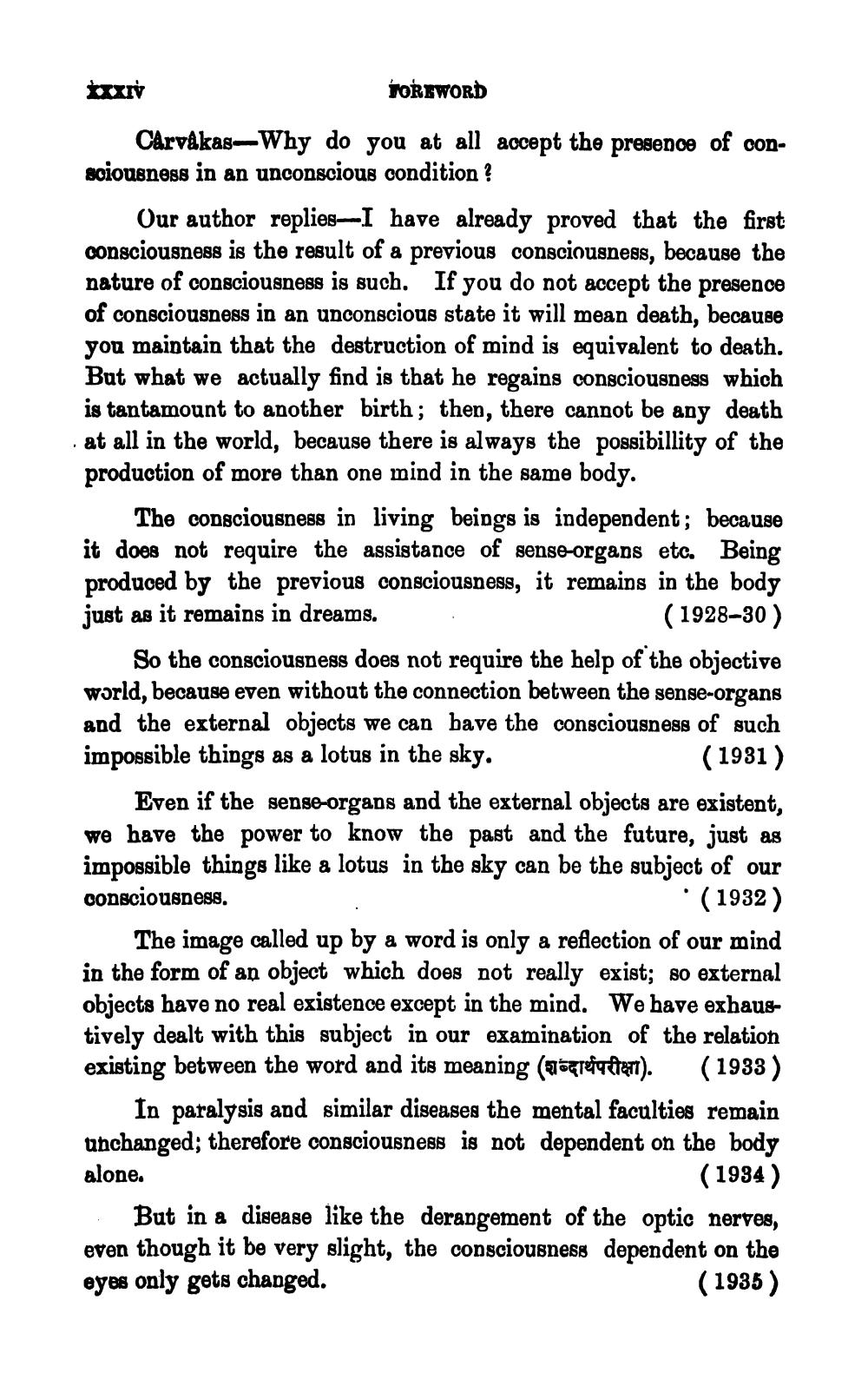________________
TAXI
FOREWORD Carvakas-Why do you at all accept the presence of consciousness in an unconscious condition ?
Our author replies I have already proved that the first consciousness is the result of a previous consciousness, because the nature of consciousness is such. If you do not accept the presence of consciousness in an unconscious state it will mean death, because you maintain that the destruction of mind is equivalent to death. But what we actually find is that he regains consciousness which is tantamount to another birth; then, there cannot be any death at all in the world, because there is always the possibillity of the production of more than one mind in the same body.
The consciousness in living beings is independent; because it does not require the assistance of sense-organs etc. Being produced by the previous consciousness, it remains in the body just as it remains in dreams.
(1928-30) So the consciousness does not require the help of the objective world, because even without the connection between the sense-organs and the external objects we can bave the consciousness of such impossible things as a lotus in the sky.
(1931) Even if the sense-organs and the external objects are existent, we have the power to know the past and the future, just as impossible things like a lotus in the sky can be the subject of our consciousness.
(1932) The image called up by a word is only a reflection of our mind in the form of an object which does not really exist; so external objects have no real existence except in the mind. We have exhaustively dealt with this subject in our examination of the relation existing between the word and its meaning (aocrefydtert). (1933)
In paralysis and similar diseases the mental faculties remain unchanged; therefore consciousness is not dependent on the body alone.
(1934) But in a disease like the derangement of the optic nerves, even though it be very slight, the consciousness dependent on the eyes only gets changed.
(1935)




